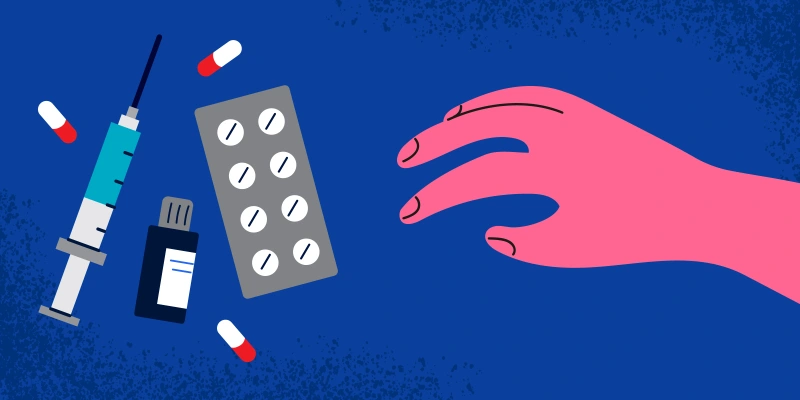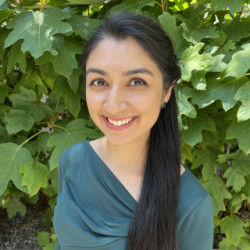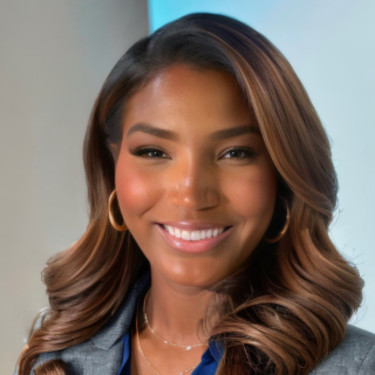
Name: Ijeoma Okoye
Med School: Medical College of Georgia School of Medicine
Year: Third Year
1. How did you get into starting The Balancing Act and how has it helped you as a med student?
I wanted to have more purposeful social media and felt like I could have an impact through a blog. I represent one of the unfortunately low number of (in comparison) African American females in medicine. So, while I write for a broad audience, I recognize how important minority representation is in my field. My blog allows me to be a role model on a larger scale.
2. What technology is essential to your study routine?
My laptop. I pretty much do everything on it. In third year, most of your studying is doing practice questions and reading one or two books particular to the rotation you’re on. I take notes on google docs on my laptop and review them on my phone when I get spurts of free time. My planner is also essential because that’s where I list everything that I want to accomplish for the day.
3. What is your #1 study tip?
Learn your study style as soon as possible. At my school, first year was pass/fail, which made it the ideal time to do that. Are you digital or paper-pencil? Do you like flashcards? Do videos help you understand things? Partner vs. group vs. self-study? When you discover what works for you, you take control of the information. So much comes at you and you can’t control the volume, but you can control how you will tackle it. Close second is to set goals each time you sit down to study — always have a plan and make sure it’s realistic.
4. How do you keep yourself motivated or get out of study ruts?
I usually reach out to a friend so they can give me a pep talk. In med school, everyone knows what you’re going through, so I’ve found that my med school friends know the right thing to say to motivate me. Sometimes taking a quick 20 min break to watch something mindless will help reset my brain.
5. What does your daily study schedule look like?
First and second year things were all over the place as I worked around school and extracurriculars. Now in third year, it’s pretty standard. I’m home by 5 on average. I do anywhere from 20–40 questions, review them and take notes, then do readings. I watch 3–4 online med-ed videos a night depending on where I am in the rotation (I watch them at the beginning to set a baseline). I take advantage of early mornings whenever I can.
6. What would your classmates be most surprised to learn about you?
It is very hard for me to memorize things. My brain just doesn’t do rote memorization. I suck at flashcards. Sometimes I can make it happen but for the most part I have to just understand things and make connections for information to stay in my head. In the long run it helps, but in the short term it’s pretty frustrating.
7. What would you be doing if you weren’t in medical school?
I’d be an event planner — probably for big parties and weddings. I just love seeing spreadsheets, budgets, sketches, written ideas, etc. come to life. I’m also very organized and detail-oriented, so planning things satisfies that for me.
8. What is the most important lesson you’ve learned so far in medical school?
Everyone has their own journey. I can’t compare what happens to me with what’s happening with someone else. I can only stay in my lane and do the best that I can. I’m in competition with myself, no one else.
9. What is your curriculum like at the Medical College of Georgia?
We have an organ systems-based curriculum which is covered in terms of “normal” for first year and “abnormal” for second year. So we cover anatomy, histology, physiology, biochemistry, etc. as M1s and pathophysiology, pharmacology, pathology, immunology, microbiology, etc. in second year. Third year is core clerkships. Fourth year is paradise.
10. What was your most memorable “first” experience in medical school?
Definitely anatomy lab first year. I’d never seen a dead body, let alone 30+ of them. The look, the smell, everything that was expected of us, it was very overwhelming at first. With time, though, I got comfortable with that unique learning environment.
11. How are the topics of burnout, wellness, and work-life balance addressed at your school?
We have sporadic sessions, but not on a regular basis — definitely not addressed much in the third year. However, our faculty always emphasize their availability for us if we ever feel too much anxiety/depression/burnout. I’ve never felt unsupported.
12. Which rotation has been your favorite? Is it what you expected it would be?
I’ve actually loved all of my rotations. Even surgery, which I’m on right now — that was actually the biggest surprise. I’ve done peds, OB, palliative care, and family also. I knew I’d love them all though, I’m planning on going into family medicine.
13. What is the best advice a resident or attending gave you?
Your job on rotations is to be a sponge, soak up as much as you can from every patient, every person you work with. And you’re here as a medical student. Just be a medical student. The time will come for you to be an intern and senior resident. When you’re told to go home, go home.
14. Do you have any for tips on being on-call?
Bring work with you to study, and snacks. Don’t look uninterested. Every hospital is going to be different. Ask the residents for a few tips specific to where you are.





